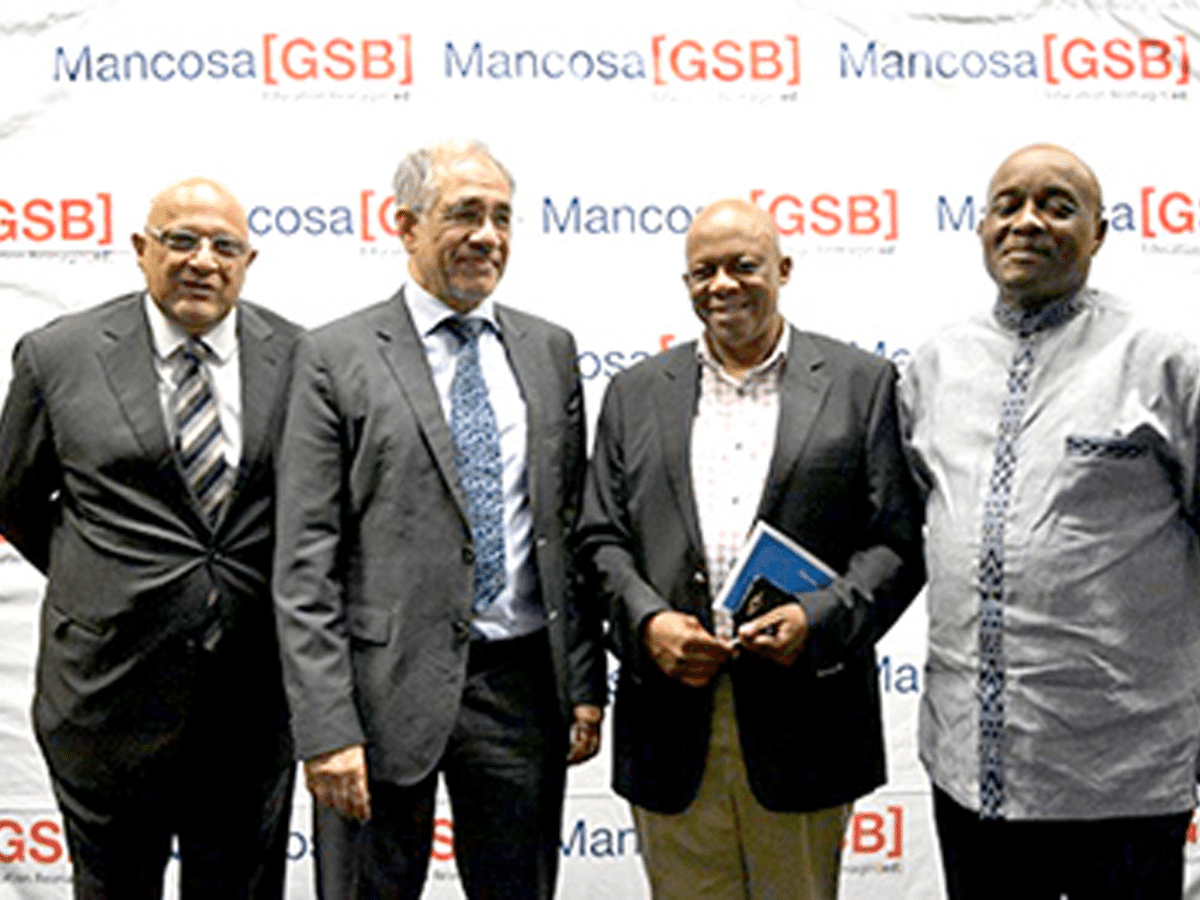Funding The Future: How Efficient Taxation Courses Benefit Society
In this article, we’ll discuss the role of taxation in society, the current taxation challenges South Africa faces, and the benefits of a proper tax system. We’ll also discuss what taxation courses entail so you can decide whether this is the right career path for you.

Summary
axation plays a critical part in any government.
Well-educated and trained tax professionals can help countries achieve effective tax systems to build a prosperous society and economy.
That’s where MANCOSA’s Higher Certificate in Tax Administration comes in. It covers the fundamental concepts and practices related to tax collection and management so students can work with individual taxpayers and businesses alike.
In this article, we’ll discuss the role of taxation in society, the current taxation challenges South Africa faces, and the benefits of a proper tax system. We’ll also discuss what taxation courses entail so you can decide whether this is the right career path for you.
The role of taxation in society
Taxation is critical in society since it’s the primary source of government revenue. This revenue is instrumental in funding essential public services, goods, and infrastructure — all vital to societal well-being and development.
Some examples of goods and services that taxation funds include but aren’t limited to education, infrastructure (roads and public buildings), healthcare, and defence. Governments rely on these funds to cover costs so that they have the means to provide citizens with a livable and safe environment.
How tax plays a role in some of these vital categories, include:
- Education: Tax funds support educational institutions by providing resources and maintaining learning environments. Investing in education helps the country develop highly skilled workers that can aid in growing the economy.
- Healthcare: Tax funds are used to maintain and improve healthcare facilities to ensure the health and well-being of citizens. This includes personnel, medication, and more.
- Infrastructure: Tax money is essential for building and maintaining infrastructure, such as roads, bridges, and public facilities.
The impact of taxation on economic growth and development
Taxation plays a crucial role in economic stabilisation. Governments can implement fiscal policies, including taxation, to manage economic cycles by adjusting tax rates based on the country’s financial situation and external factors.
Taxation can also have a massive impact on the distribution of wealth within society and among different income groups.
Progressive tax systems (such as those used in South Africa) are implemented where people with higher incomes pay a more significant percentage of their income in taxes. As a result, this reduces income inequality.
Current challenges of taxation in South Africa
South Africa, like many other countries, face some challenges when it comes to taxes. These include, but aren’t limited to, the following:
- Tax evasion and non-compliance: Tax evasion is when individuals and businesses deliberately claim to earn less than they do to pay less in taxes. Non-compliance is when individuals file their taxes late or don’t pay them. Both situations are common in SA. However, SARS is trying to rectify this situation by charging late fees to encourage taxpayers to pay on time.
- Inequality of wealth: South Africa has high levels of inequality, resulting in heavy financial burdens on lower-income earners who can’t afford to pay their taxes.
Complex and confusing systems: Some people find tax laws quite challenging, leading to much confusion among taxpayers and tax authorities. This leads to errors and significantly slows down the process. - Informal economy: Economic activities often go unrecorded and untaxed, making it difficult for tax authorities to capture tax income in specific industries.
- Corruption: Unfortunately, corruption does exist in South Africa and corruption in tax administration can severely impact the effectiveness and fairness of the tax system. As a result, bribes and fraudulent practices lead to a loss of public trust.
- Tax policy changes: Frequent changes can confuse individual taxpayers and businesses, making it challenging to remain compliant and plan for the future.
Benefits of efficient taxation for South African citizens
Efficient taxation in South Africa has many benefits, including the following:
- Revenue generation: An efficient taxation system ensures a consistent revenue stream for the government to fund healthcare, infrastructure, welfare, and education programmes.
- Economic stability: Efficient taxation contributes to a strong and stable economy since it allows the government to implement specific counter-cyclical fiscal policies.
Prevents income inequality: An efficient tax system distributes the tax burden fairly among South African citizens. When those who earn more pay higher taxes and those who earn less pay less on taxes, this helps reduce income inequality. - Administrative efficiency: When tax administration is efficient, it ensures that the process of collecting rent is more seamless — significantly reducing costs for taxpayers and tax authorities. This includes automated systems, internal training, implementation of technology, and more.
- Government transparency: An efficient tax system increases transparency by setting clear guidelines and regulations. This makes it easier for citizens to trust tax policies and have confidence in the government’s plans.
- International competitiveness: A well-designed and efficient tax system helps South Africa remain internationally competitive. Fair tax systems make South Africa’s business environment far more attractive to international investors, promoting economic growth.
- Social development programmes: Effective tax systems allow the South African government to invest in social development programmes that could benefit its citizens. This includes investing in healthcare initiatives, poverty alleviation, or education.
Taxation courses: what they entail
Taxation courses cover various topics related to tax laws, policies, regulations, and processes. Trained and qualified individuals will be in a position to provide a service that keeps the taxpayer compliant and assists in the country’s economic growth and stability.
MANCOSA offers a Higher Certificate in Tax Administration that covers the fundamental concepts and practices related to tax collection and management. It includes topics such as tax law, compliance procedures, taxpayer rights, audit techniques, and the use of technology in tax administration. The course curriculum includes:
- Ethical considerations
- Effective communication
- Problem-solving skills
- And much more
It teaches students through practical exercises, case studies, and real-world scenarios to provide hands-on experience.
At its core, taxation courses equip students with the knowledge and skills needed to effectively and ethically manage tax collection, enforcement, and taxpayer services within a legal and regulatory framework.
Register for a Certificate in Tax Administration with MANCOSA
Now that you understand tax administration and its role in South Africa, are you interested in becoming a tax professional to contribute to effective taxation systems? Learn more about our Higher Certificate in Tax Administration.





